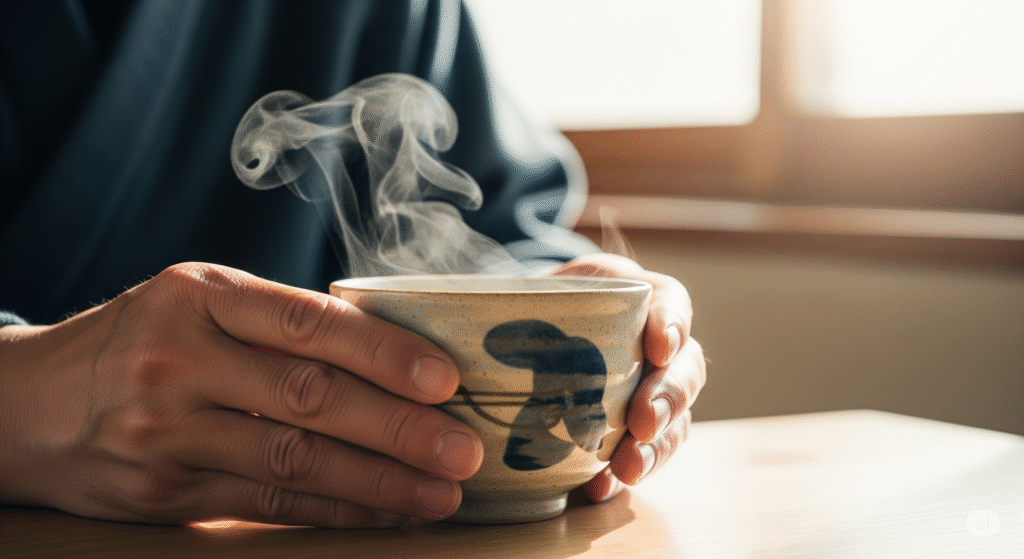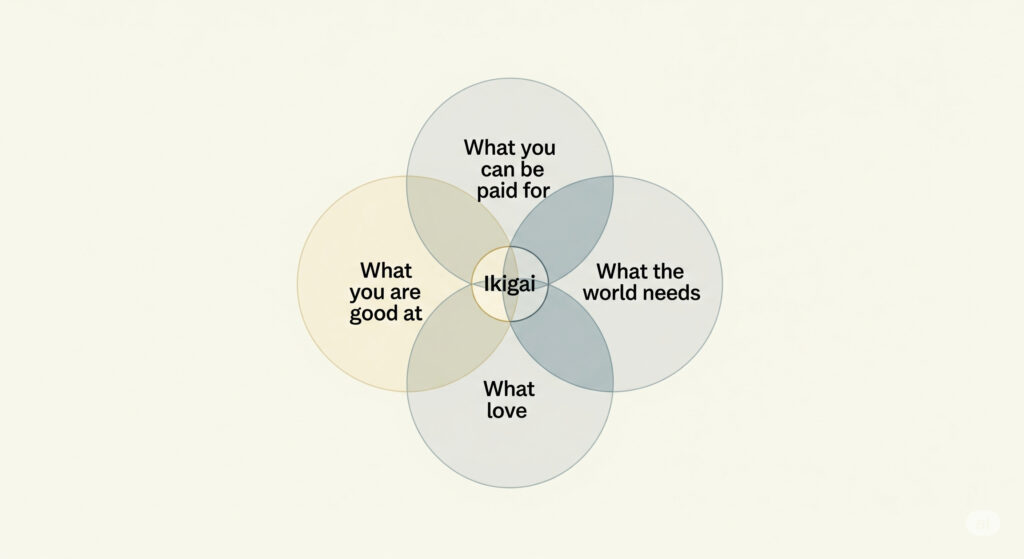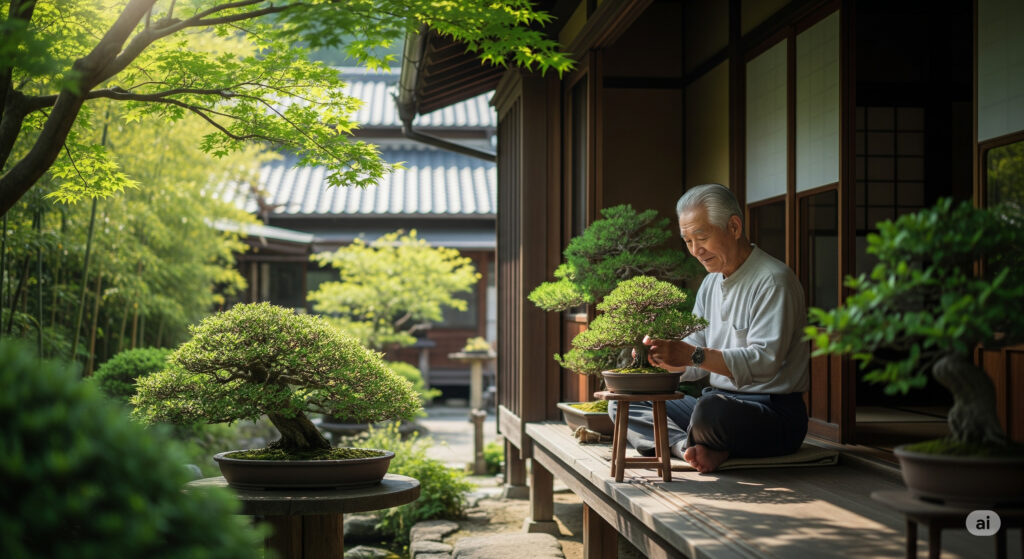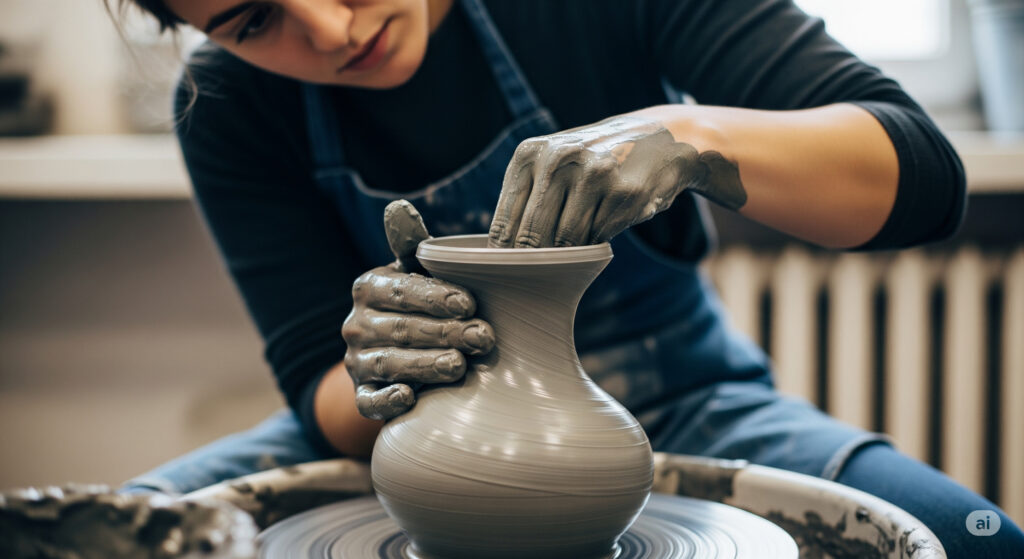Introduction
In recent years, ikigai has gained international attention as a way to live a fulfilling life. Rooted in Japanese culture, this concept goes beyond happiness or purpose — it’s about finding joy in the act of living itself.
What Does “Ikigai” Mean?

Ikigai (生き甲斐) is a Japanese word that roughly translates to “reason for being.” It comes from:
- “Iki” (生き) = to live
- “Gai” (甲斐) = worth or value
It’s the feeling you get when you wake up excited to start your day. It doesn’t have to be something big — even small daily joys, like drinking tea or walking your dog, can be your ikigai.
The Four Elements of Ikigai

Western interpretations often use a Venn diagram with four overlapping circles, showing how ikigai lies at the center of:
- What you love (Passion)
- What you are good at (Profession)
- What the world needs (Mission)
- What you can be paid for (Vocation)
❗ Note: This diagram is popular in the West but not traditionally Japanese — it’s more of a reinterpretation.
Ikigai in Daily Life: It’s Not Just About Work

Unlike Western ideas of success or purpose, ikigai isn’t always tied to money or productivity. In Japan, people find ikigai in:
- Caring for grandchildren
- Practicing a hobby
- Helping neighbors
- Gardening
- Morning rituals
Especially in Okinawa (a “Blue Zone” where people live the longest), ikigai is seen as one reason for their happiness and longevity.
Why Has Ikigai Become So Popular Abroad?
The rise of burnout, hustle culture, and career anxiety has led many people in the U.S. and Europe to seek alternative ways of living. Ikigai offers:
- A slow, intentional approach to life
- A way to reframe daily routines as meaningful
- A balance between personal and societal value
Books like “Ikigai: The Japanese Secret to a Long and Happy Life” (by Garcia & Miralles) have boosted awareness worldwide.
Do Japanese People Still Value Ikigai Today?

While the idea of ikigai still exists in daily life — like enjoying small routines or helping others — many people in Japan today face real-life challenges such as rising living costs and growing economic inequality.
Because of this, ikigai is often seen as something to reflect on after retirement, when people have more time and freedom to focus on personal meaning, rather than just surviving day to day.
In modern Japan, ikigai is less about chasing a grand purpose, and more about finding peace within life’s realities.
How to Find Your Ikigai

Here are some questions to reflect on:
- What brings me joy, even if no one pays me for it?
- What activities make me forget about time?
- What would I still do if I had all the money in the world?
Start small. Your ikigai may already be part of your life — you just haven’t noticed it yet.
Conclusion
Ikigai isn’t a magic formula or a goal to reach. It’s a quiet, deeply personal guide to living with purpose and peace.
Rather than chasing happiness, ikigai teaches us to find value in the journey itself.